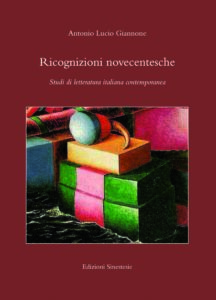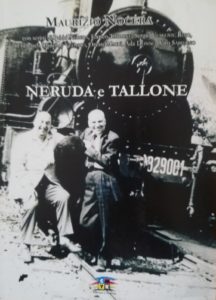 di Marco Capriz
di Marco Capriz
Terrorism is the symptom, not the disease. Terrorism has no country. It’s transnational, as global an enterprise as Coke or Pepsi or Nike. At the first sign of trouble, terrorists can pull up stakes and move their “factories” from country to country in search of a better deal. Just like the multi-nationals. Arundhati Roy (The Algebra of Infinite Justice, 2001).
Abstract.
This paper examines what the author believes are three threats that may be faced by Western intelligence communities in the coming decade. These threats have a common theme. The first is the mobility of terrorism and its transnational nature: we have already started seeing a “syndication” or outsourcing of terrorism, making its detection and interdiction much more complex. Outsourcing terrorism could be used as a policy tool by a hostile government, but the connection to the principal may be hard to detect and prove. The second issue is that when states use terrorism as an outsourced tool, they run the risk of losing control of their proxies, as these perceive themselves to be above their principals’ control. This makes it very difficult to attack the political masters to force them to regain control over a terrorist group they have, in fact, lost. The third issue is that the current direction of the Intelligence Community is a threat in itself, as it may not have the capability to detect such amorphous threats in time, and more importantly determine what the best long-term interdiction and suppression strategy against them may be.
The syndication of terrorism.
Terrorism outsourcing isn’t new. Iran’s involvement with the Lebanese Shia Hezbollah group is well known. Whereas Iran disputes these allegations, Hezbollah has been accused of conducting the 1983 Marine Barracks bombing on instigation from Iran, who a few weeks earlier had warned of retaliatory action because of America’s support of Iraq in the Iran-Iraq conflict. An FBI investigation also found evidence of Iran’s involvement in the 1996 Khobar Towers bombing in Saudi Arabia, even though ostensibly the attack was carried out by Saudi Sunni militants (FBI National Press Office 2001).
It is arguable that Iran can operate a clandestine foreign policy through Hezbollah. In a testimony to Congress in 2006, Christopher D. Hamilton, Senior Fellow and Director of Terrorism Studies at The Washington Institute for Near East Policy, opines, “Hezbollah, by virtue of its actions in [the Israel-Lebanon] conflict, now seems to be less of a proxy for Iran and more of a junior partner in an alliance.” (Hamilton 2006)
Hamilton describes Hezbollah as being much more capable of waging low intensity conflict that either the United States or Israel, that “they have become experts in the art of concealing their activities” and that
As a result, it is possible that we will find it increasingly difficult in the future to use the two principle statutes we have to disrupt terror support in the U.S. – the International Emergency Economic Powers Act (IEEPA) and the Anti-Terrorism and Effective Death Penalty Act of 1996 – as terror organizations become more adept at evading the requirements of these statutes. (Hamilton 2006)
Moving from the Middle East to Central Asia, war by proxy has been conducted for years by Pakistan against India in the disputed Kashmir region and India itself (the Mumbai attacks of 2008). There is, however, a significant difference between the way Pakistan and Iran operate long distance low intensity conflict by proxy.
Iran and Hezbollah have demonstrated the ability to be extremely disciplined in the way they choose targets and carry out attacks. Iran is a fully functioning country with a government whose reporting structures, while not immediately obvious, are well defined internally. Iran has built a wall of plausible deniability that allows it to operate its expansion policies in the Middle East through proxies like Hezbollah in Lebanon, and other affiliates such as the Mahdi Army in Iraq, without having to take direct responsibility for their actions.
In Pakistan the situation is quite the different. Whereas Iran is, by Western definitions, a rogue state, Pakistan is fast becoming a failed state. The civilian government appears to have little or no authority over the military structure, and the military structure’s control over the vast intelligence bureaucracy (the Inter-Services Intelligence – ISI) is unclear. Within the ISI itself the chain of command seems vague. As Daniel Bayman notes
whether any Pakistani government is in firm control of its intelligence services is open to question. The ISI is reported to channel resources to various Islamist groups, tip them off about government counterterrorism actions, and look the other way as they recruit and raise money. Whether this has been official policy or not is difficult to assess. (Byman 2008)
However the apparent failure of government controls in Pakistan may hide the fact that there exists a very real chain of command hidden deep within the ISI and the Pakistani military that controls extreme jihadist groups. The South Asia Terrorism Portal is a website edited by Indian academics and therefore its full objectiveness might be questionable. Nevertheless the editors have compiled what they describe as the most comprehensive list of terror groups operating in and around Pakistan. There are 32 transnational organizations listed on their website (South Asia Terrorist Portal n.d.), most of whom the editors claim to be organized by or have been in contact with the ISI. The listed objectives of these groups seems to be generally limited to operations within Jammu and Kashmir and the Federally Administered Tribal Areas (FATA) of the Pakistani North West Territories, but some groups clearly have wider ambitions: Lashkar-e-Toiba, the architects of the 2008 Mumbai massacre, have stated that they aim to “plant the flag of Islam from Washington to Tel Aviv” (South Asia Terrorist Portal n.d.)
The syndication of terrorism ultimately means that is becomes extremely difficult to mount effective interdiction strategies that have long term effects. In the Global War on Terror the words themselves are part of the problem. It is impossible to mount an effective campaign on a concept. Western security agencies are becoming sidetracked by the effects of terrorism and are generally mounting tactical campaigns against shadows. Predators and Hellfire missiles may be effective at eliminating specific targets, but the nature of syndicated terrorism makes the removal of those targets irrelevant to the goals of the syndicators. When one cell leader is removed the principals can easily replace him, and as leadership in the business of terrorism requires a low entry bar, it is very easy to find such replacements. When terrorism is outsourced what is not easy for the interdictors is to get at the principals. Iran has created a wall of plausible deniability around the operations it externalizes through Hezbollah and other foreign organizations. Taking on the suspected principals in Iran would be a momentous political decision that is likely to get very little international support and probably not much support within the US considering the ramifications of what would have to be an all out war with a country that cannot legally be linked to terrorist events.
Iran is not a failed state. At a strategic level the government’s foreign policy has to be approved by the Council of Guardians and their power is clearly identified in the country’s constitution. Pakistan presents a greater problem. In Pakistan, not only the military chain of command and its relationship with the ISI is unclear, but the civilian government is completely ineffective, and has arguably little or no control over the country’s military and security establishments. How can we expect to carry out an effective strategic dialog with the country’s elected representatives who are only nominally in charge? On the other hand this ambiguousness is very effective for the syndicators as it makes it impossible for anyone planning a long-term strategy to know who to target for elimination or who to engage in dialog.
But as successful as the syndication of terrorism is for the principals who run the actors of their plans behind a curtain of deniability, its very success becomes a long-term threat to the principals themselves. This is where the second threat emerges.
Losing control of the syndication.
The Saudi Arabian Government has not sponsored terrorism directly. However, through early passivity it has been responsible for the creation and export of terrorists over whom it has no control. This unwitting syndication of terrorism derives from years of Saudi policies that encouraged militants to find foreign jihads to fight, in order to eliminate the possibility of them turning on their own government. Although it is a transnational organization today, Al Qaeda has Saudi roots.
It is therefore legitimate to ask how will Iran and Pakistan manage deliberately syndicated terrorist creations in the future? Al Qaeda has been very successful in funding its campaigns from worldwide sources. Once a terrorist group has been given organizational, strategic and tactical training from its principal, and has learned to seek independent funding, what need does it have for its parent organization? Ties that are maintained for political or ideological reasons are the weakest and easiest to break. And funding is very easy to find elsewhere. Indeed Hezbollah, for example, has been very successful in generating income through criminal enterprise. One such enterprise was based in the US where Hezbollah fundraisers ran a smuggling ring that profited from illegally importing cigarettes in to Michigan (where sales taxes on them are high) from North Carolina (where the sales taxes are low). A joint counterterrorism task force ended the operation in 2000 with the arrests of all involved.
Loretta Napoleoni is a macroeconomist who specializes in the funding of terrorism. She began her research interviewing Red Brigade[i] members in Italian jails in 1993. She discovered that most of the time the foot soldiers of terrorist groups were engaged not in outright terrorist activities but in run-of-the-mill criminal activities (such as bank robberies and extortion) that were needed to raise the cash to support the more expensive and complex terrorist attack the leaders were planning (TED 2009). Napoleoni observed that ideology was never a factor at this level of the operations. This is an important observation.
It has been reported that Middle East and Central Asian terrorist groups are linking up with organized crime groups to fund their activities. In Remarks at the Washington Institute for Near East Policy David T. Johnson, Assistant Secretary of the US Bureau of International Narcotics and Law Enforcement Affairs, stated
A convergence of crime and corruption can also pave the road for terrorist organizations to finance their terror, as was the case in Bali, Madrid and Mumbai. In particular, terrorist financiers are not only concealing their financing assets through complex transactions in the formal banking system, but also harnessing centuries-old money laundering tactics. They exploit informal value transfer mechanisms such as hawala or hundi and trade-based money laundering, and use illegal cash couriers as bulk cash smugglers, particularly in countries with non-existent or weak anti-money laundering enforcement practices. (Johnson 2010)
Writing for the Congressional Research Services, John Rollins and Liana Sun Wyler list ten examples of the collusion between terrorist groups and organized crime. The first example in their list is
Dawood Ibrahim’s D-Company, a 5,000-member criminal syndicate operating mostly in Pakistan, India, and the United Arab Emirates [that] provides an example of the criminal-terrorism “fusion” model. (John Rollins 2010)
Dawood Ibrahim began his career as a smuggler in Bombay, India in the 1970s, and subsequently became the leader of a crime syndicate. In the 1990s he became radicalized and joined forces with Lashkar-e-Toiba. The synergy between his criminal expertise and Lashkar-e-Toiba’s terrorist goals is interesting and very worrying. As terrorism mixes with crime, both parties prosper as both exploit each other’s strengths and revenue generation capabilities. But the biggest worry is that eventually a terrorist operation that once was directed by a government’s chain of command (obscure as it may have been) now can make the move to being a completely self-funded organization, with independent means. The collusion between criminals and terrorists makes both much more dangerous. Criminals become radicalized and exploit the transnational networks that terrorists offer them. These network open wider markets for their criminal operations (such as smuggling of contraband goods, narcotics and people). And as terrorists benefit by becoming financially independent from their former masters, they are no longer restrained by their principals’ long-term political goals. The most worrying evolution of this unshackling process is that now a new force has been created: a terrorist-crime syndicate, transnational in reach, well funded, that can evolve naturally in to a terrorism-for-hire force. Although there is little evidence of this for now, a logical evolution for such a force would be to further its goals by offering its services to other national clients chosen possibly with the belief that “the enemy of my enemy is my friend”. Which leads to the question: could we see a future in which an organization such as an evolved Laskar-e-Toiba rents its services out to a Chavez-run Venezuela or a Kim Jong Il-run North Korea? Would the intelligence community be capable of interdicting such an alliance?
Are intelligence services evolving as fast as their targets are?
It is tempting to answer in the negative to these questions. In Western countries counterterrorism operations are ultimately directed by the political structure that runs them. This means that the strategic goals that the intelligence community is required to achieve are based on the goals of the political environment that controls them. Whereas this is exactly how a democracy should work, the weakness of the system is introduced by a political class that has little international vision, is beholden to a system that requires the visible achievement of short-term goals that are meaningless at best, and damaging at worst when translated in to goals that need to be reached by the guardians of our safety.
The most obvious demonstration of the fallacy of our efforts against terrorism to date is the very term that is being used to define the fight: the War on Terror. This is the same as saying we are conducting a war on the gun, but not the soldier carrying it, let alone the general directing him. We have many times succeeded in eliminating a few guns and occasionally a few soldiers as well. But there is no obvious evidence that this war is anywhere near close to being won. As the entities behind the gun evolve, our strategies are still to demonstrate showy short-term results (YouTube videos of a Hellfire missile hitting a target in Yemen for example) rather than develop successful long-term ones that necessarily will only bear fruit beyond the lifetime of a political administration.
Such long-term solutions would require efforts that, for the time being at least, seem to be absent from our political plans. For example, in dealing with Iran we need to face and accept the fact that, unpleasant as its leadership may be, it is a fully working and capable country, it is becoming a regional superpower, it will not be cowed by sabre rattling words, and that we have no effective military solution to deal with it. So why not try to engage it economically in the best possible way for Western interests? The Iranian government is doing what Western powers have done for centuries: it is projecting power. We need to accept that fact and not confine ourselves to policies that try to counter its wish to be a regional power broker, but to look for economic benefits in an engagement with such a power. In the long term we can subtly leverage the fact that there is real internal resentment against the power of the Council of Guardians, and carry out covert political intelligence operations to disrupt their power and help an internal opposition replace it. However by not having any engagements with the country such a strategy will never work.
In Pakistan the approach will have to be different. We need two separate strategies to solve to the problem of terrorism syndication there. The gradual transformation of terrorist groups in to criminal enterprises is a problem for the intelligence community as it is currently structured. However there is ample knowledge on how to interdict criminal syndicates within law enforcement agencies. Because of the transnational nature of the syndicates there will be the need for transnational cooperation between police forces, and again there is ample precedent for this. As the terrorist syndicates grow, their hawala-based networks will be insufficient to handle the amounts of cash that they will need to transfer between countries. The syndicates will have to resort to electronic based money laundering techniques that international law enforcement agencies and worldwide concerted legislation are becoming very successful in countering. The second approach is to reduce the syndicates’ pool of foot soldiers, not by the extremely expensive Predator/Hellfire approach, but by a much cheaper and more constructive educational approach. The main reason that there is an ample supply of radicalized young people in Pakistan today is because of the export of radical thought that began decades ago from Saudi Arabia. This translated in to Saudi funding of madrassas that arguably are the only alternative for many Pakistani children to living in poverty on the street. It is very tempting to argue that if Western countries spent the same amount of money that Saudi donors spent on technical and professional schools in Pakistan, and that children were given the choice between a school that teaches Koran recitation and hatred for Western principles, and learning how to be plumbers or electricians, madrassas would see their halls empty quite fast.
But such strategies (a new approach to Iran, long term policing of criminal syndicates, and generational approaches based on education) are of no interest to a political class driven by sound bites and instant polling numbers.
This is possibly the biggest threat facing our intelligence communities: our own political environment is no longer capable, or possibly interested, in any strategies that may outlive its time in office. However terrorism and crime are not run by polling numbers and can evolve without the need for focus group reports.
Ultimately the necessities of short-term politics may well turn out to be the biggest threat to our safety.
Bibliography
Byman, Daniel. “Rogue Operators.” The National Interest (Gale, Cengage Learning), no. 96 (July-August 2008): 52+.
FBI National Press Office. “Terrorism charges have been brought against 13 members of the pro-Iran Saudi Hizballah .” National Press Releases. 20 June 2001. http://www.fbi.gov/news/pressrel/press-releases/terrorism-charges-have-been-brought-against-13-members-of-the-pro-iran-saudi-hizballah (accessed November 19, 2011).
Hamilton, Christopher D. “Hezbollah’s Global Reach.” US House of Representatives – Committee on Foreign Affairs. 28 September 2006. http://democrats.foreignaffairs.house.gov/archives/109/30143.pdf (accessed November 19, 2011).
John Rollins, Liana Sun Wyler. “International Terrorism and Transnational Crime: Security Threats, U.S. Policy, and Considerations for Congress .” CRS Report for Congress. 18 March 2010. http://www.fas.org/sgp/crs/terror/R41004.pdf (accessed November 20, 2011).
Johnson, David T. “The Escalating Ties Between Middle Eastern Terrorist Groups and Criminal Activity.” US Department of State. 19 January 2010. http://www.state.gov/p/inl/rls/rm/135404.htm (accessed November 20, 2011).
South Asia Terrorist Portal. “Terrorist and Extremist Groups of Pakistan.” South Asia Terrorist Portal. Voice of Islam (accessed November 20, 2011).
TED. “Loretta Napoleoni at TEDGlobal 2009: Running notes from Session 8.” TED: Ideas Worth Spreading. 23 July 2009. http://blog.ted.com/2009/07/23/loretta_napoleo/ (accessed November 20, 2011).
[i] The Red Brigades were a left-wing terrorist group that operated in Italy in the 1980s. They carried out a number of attacks on banks and government institutions and their biggest success was the kidnapping and assassination of the then Italian Prime Minister Aldo Moro.






























































